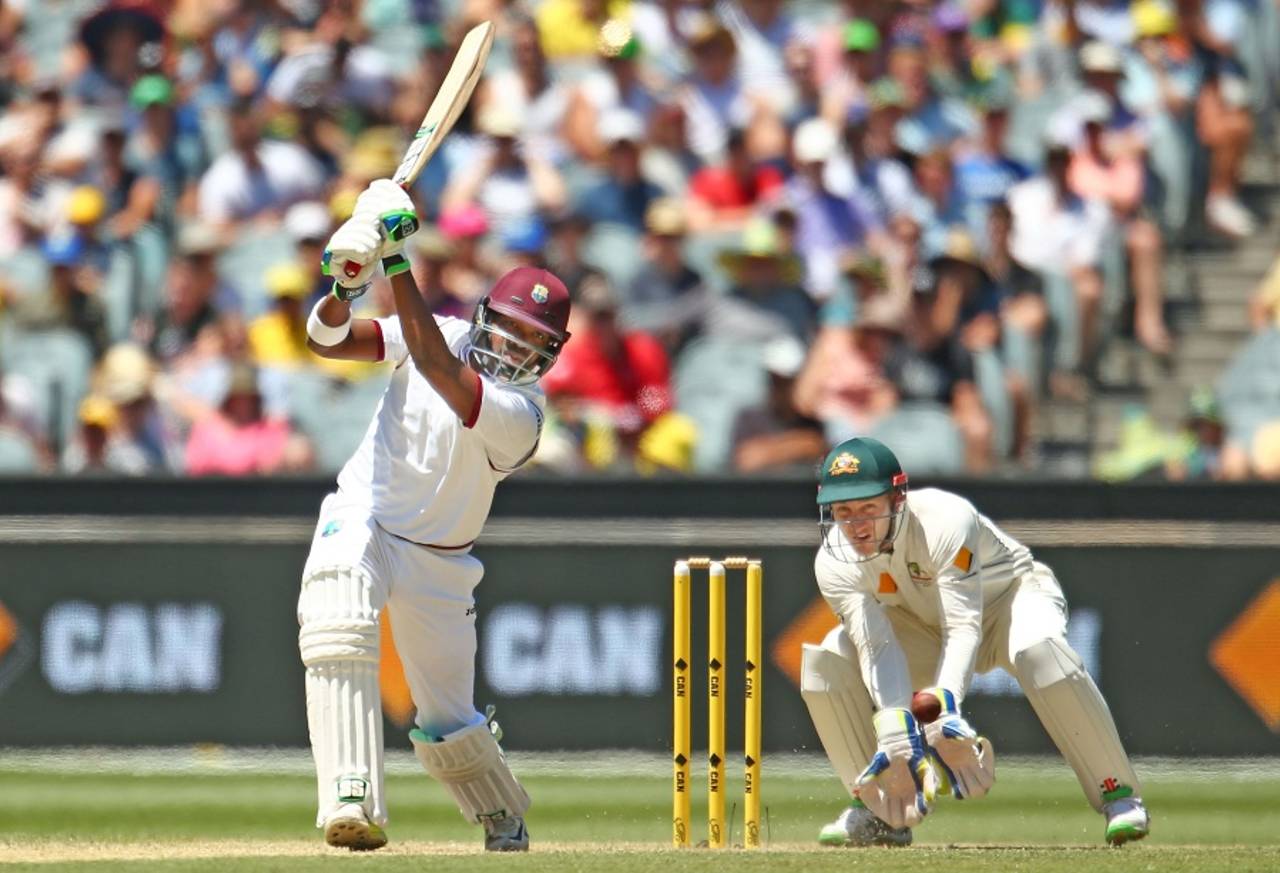Yes, we all know
Darren Bravo modelled his game on Brian Lara. He looks like Lara at the crease, the stance, the class through the off side. They are cousins, after all. But on the third day in Melbourne, Bravo seemed not to be channelling Lara, but another of the best Caribbean batsmen of the past two decades. Six hours at the crease, 81 runs, no boundaries in his first hundred balls. This was a Shiv Chanderpaul of an innings.
If there was one thing that Chanderpaul could do, it was to soak up balls and minutes. The runs would eventually come, a byproduct of his time at the crease. More often than not, his approach was to subdue the opposition attack, tire them out, frustrate them. Give West Indies a chance of staying in a match. At the very least, Bravo ensured that a Test that seemed likely to finish on day three will go to day four. Or five.
In a series in which West Indies have underwhelmed, even allowing for low expectations, Bravo has been the exception. Carlos Brathwaite might literally stand head and shoulders above his team-mates, but Bravo does so figuratively. There have been 28 West Indian batting partnerships during this series and Bravo has been part of 18. The other 10 have all featured Kraigg Brathwaite; that's a heavy reliance on two men.
Bravo's century in Hobart was a display of class; his 81 in Melbourne was too, though class of a different kind. Before this Test, Bravo was asked what the batsmen needed to do in order to improve on the Hobart fiasco. His answer was straightforward: give yourself time to get in. If you spend time in the middle and respect the good balls, he said, the bad balls would come and the rewards would be reaped in the end.
It was almost a word-for-word description of the way Bravo batted. He came to the crease on the second afternoon at 1 for 35. Wickets quickly began to fall around him, but Bravo held firm. He left a few balls but mostly his method was straight-bat defence, Australia's reluctance to give him width outside off meaning that he usually had to play. His patience and discipline were notable, his preparedness to wait, and wait, and wait.
His first boundary did not come until he had already faced 100 deliveries. Runs were a secondary consideration for Bravo, although it helped that Carlos Brathwaite was scoring at a decent rate at the other end. There were occasions when Bravo's running left something to be desired: perhaps he took too literally his desire to spend time at the crease. But that was more forgivable than taking silly risks.
His first 100 balls brought just 15 runs, but he scored quicker once Brathwaite had departed. Again his off-side dominance came to the fore. In Hobart, only 17 of his 108 runs came through the leg side and in Melbourne it was 20 of his 81. In Hobart, Bravo's first-innings 108 featured 80 runs in boundaries. Here he managed only eight boundaries, working hard to frustrate the Australians.
Even as the attrition rate at the other end grew, a century still appeared feasible until he was the last man out, caught at gully trying for some late runs before he ran out of partners. By the end of his innings, Bravo had the distinction of boasting the highest average of all time - 52.57 - for
West Indians away from home, with a minimum of five Tests.
Bravo had soaked up 204 deliveries for his 81 runs, and had batted for 363 minutes - that's more than a full day of scheduled play. In the past 25 years, only two West Indians have batted for more than six hours in an innings yet failed to reach a century: Chanderpaul did it twice and Jimmy Adams also did it twice. In the fine tradition of left-handed Caribbean crease occupation Bravo had followed.
From 6 for 91 at the start of play, West Indies were in a position of much greater respectability. By tiring the Australian bowlers they discouraged Steven Smith from enforcing the follow-on. Suddenly, there was enthusiasm in the field again, genuine celebrations when a wicket fell in Australia's second innings. West Indies will not win this Test, and probably won't even draw it, but on day three they at least regained some respect. And they had Bravo to thank for it.
Brydon Coverdale is an assistant editor at ESPNcricinfo. @brydoncoverdale
